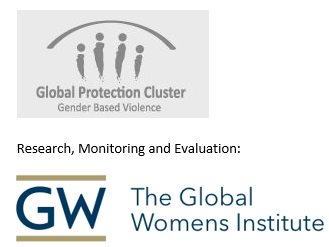All members of the data collection team must be carefully selected and receive relevant and sufficient training and ongoing support. For most VAWG research, and always when asking about individual experiences of violence, fieldworkers and respondents should be gender-matched, meaning female fieldworkers should interview women and male fieldworkers should interview men.
Composition - Careful consideration must be given to the composition of the data collection team members - including the sex of data collectors, ethnic breakdowns, literacy levels, language abilities, etc. It is particularly important to consider how conflict dynamics affect the makeup of the data collection team. For example, design of the team must consider communities associated with either side of a conflict, which communities are represented within the displaced population, and which parties are not associated with the conflict and are viewed as neutral. The final team should reflect the affected population that you are collecting data with as best as possible in terms of sex, ethnicity, language, etc. Alternatively, if it is not possible for data collectors to be similar to the affected populations (perhaps due to low literacy, limited education, or high friction within the affected populations) every effort should be made to determine what group might be considered neutral (The Global Women’s Institute, 2018).
In conflict and post-conflict areas with high prevalence of VAWG, local enumerators could be either survivors or perpetrators of violence. Extra caution must be taken to ensure that enumerators are not actually perpetrating violence. They must be carefully selected to minimize unintended consequences and mitigate potential risks.[1]
Training - Questionnaires should be pilot tested and implemented by trained and sensitized fieldworkers. Training topics should include a good introduction to violence against women and girls, dedicated time for enumerators to address their own biases and stereotypes or experiences of abuse, and a dedicated session on how to ensure the safety, confidentiality and privacy of respondents. Minimize distress to participants by training enumerators on how to ask questions in a supportive and non-judgmental way; employ empathetic listening; manage distress; and end all interviews with a positive tone. In addition, data collectors should be trained to explain the purpose of the research to those participating in the research – to allow them to make an informed decision on whether or not to participate.
[1] GWI and WHO. 3-4 Feb 2015. Conducting Population-Based Surveys on Gender-Based Violence in Conflict and Humanitarian Settings. Experts Group Meeting. Washington DC.
